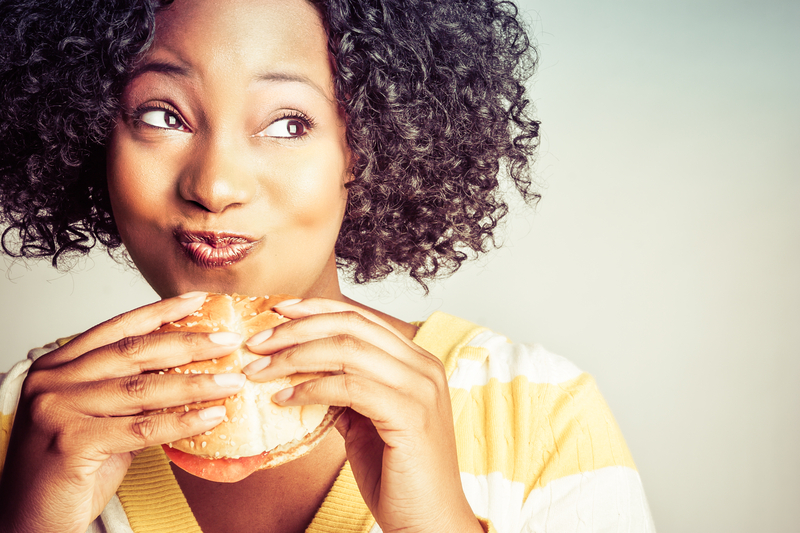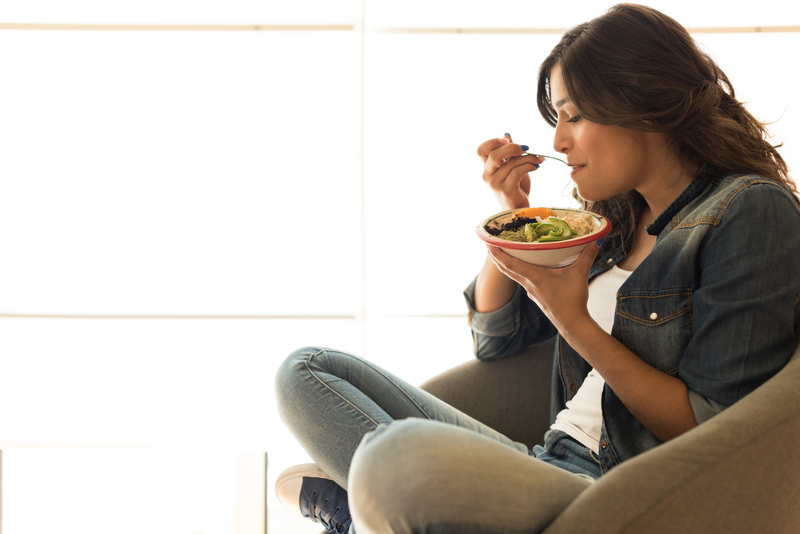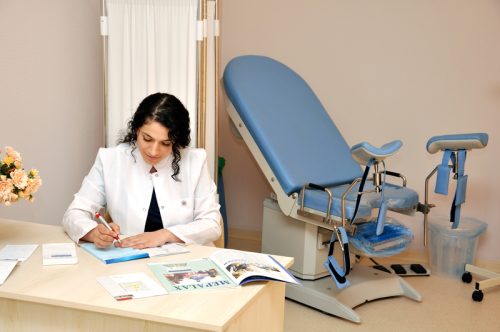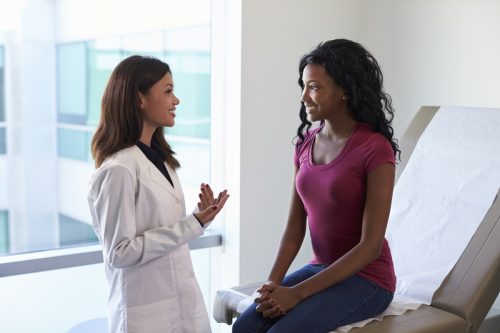If you find yourself getting strong food cravings and the urge to eat more around certain times in your menstrual cycle, you’re not alone! About 1–2 weeks before your period begins, fluctuations in your hormones can cause many side effects, including food cravings, increased appetite, bloating, fatigue, sleep disturbances, mood swings, and irritability. These side effects are collectively known as premenstrual dysphoric disorder, or PMS.
Understanding the symptoms of premenstrual syndrome and why they happen can help you understand your body and prevent food cravings from controlling your life. Keep reading to learn more about why women experience PMS food cravings and what you can do to lessen the impact they have on your diet and wellness. If you’re struggling with severe PMS symptoms, consider making an appointment today with our expert women’s health team at Great City Medical in New York City.
Why does PMS cause increased appetite?

During the 1–2 weeks leading up to the start of your period, dramatic hormonal changes can cause an increase in your appetite. There are three main hormone changes that are responsible for this: estrogen, cortisol, and serotonin.
Estrogen levels increase in the days before your period begins. When estrogen levels increase, so do your cortisol levels. Cortisol, also known as the stress hormone, puts your body in a state of high stress during this time. This can put your body on high alert and stimulate your metabolism, increasing your appetite and causing cravings for foods that are high in fats and carbohydrates.
Also during this time, serotonin levels can drop. Serotonin is a hormone associated with happiness, feeling good, and overall feelings of well-being. If your serotonin levels are low, your body will signal to you to seek out things that can help you feel better, such as eating your favorite comfort foods. With the effects of the combination of high cortisol and low serotonin levels, it is no wonder that period cravings and increased appetite are such common symptoms of PMS.
How early can PMS cravings start?

PMS cravings tend to start around 7–10 days before your period begins, but they can start as early as 2 weeks before your period begins. The exact timing and intensity of your PMS cravings will depend on your individual hormone levels and cycle schedule. PMS cravings tend to start at the same time that any other PMS symptoms begin. If you start to notice any other PMS symptoms, this can be a helpful sign that you need to start being aware of your cravings and being more intentional about what you eat. The cravings can last for several days and usually disappear once your period begins.
Is it Good to Indulge Your Food Cravings?

You may have been taught to feel shameful about your PMS cravings, but there is no need to be ashamed of your body’s natural cycles. It is important to listen to the signals that your body is giving you. An increased metabolism and other changes in your body may mean that you do actually need to eat more calories than usual during this time. Undereating can also raise cortisol levels and worsen your PMS symptoms, so be sure to give your body what it needs.
That being said, it is important to provide your body with the proper nourishment and nutrition. Instead of reaching for comfort foods that are high in sugar and simple carbs that can cause spikes in your blood sugar levels, reach for complex carbohydrates that are high in fiber. Try replacing sugary snacks like ice cream, chocolate, or potato chips with whole grains, dark chocolate, fruit, brown rice, oats, lentils, and other healthier foods. Watch your food intake and try to avoid binge eating or overindulging regularly to avoid excessive weight gain and other negative side effects from letting your cravings take control of your diet.
What foods help with PMS?
Eating big meals with too much refined sugar, simple carbs, and salt can actually worsen PMS symptoms and make you feel awful. These comfort foods might give you a temporary boost in serotonin while you’re eating them, but the effects will be short lived. The resulting drop in blood sugar levels that inevitably come afterwards can leave you feeling more depressed and sluggish than before.
Eating several small meals throughout the day can help keep hormone and blood sugar levels stable (this can help keep your mood and energy levels stable too!). Focus on eating plenty of lean proteins, complex carbs, fruits, and vegetables. Foods that are rich in vitamin B, magnesium, calcium, thiamine, and riboflavin have been shown to help reduce PMS symptoms. These foods can include whole foods such as whole grains, brown rice, legumes (beans, lentils, peanuts, etc.), nuts, seeds, dark chocolate, and dark leafy greens (spinach, kale, etc.). If you are concerned about your nutrient levels, you can also talk to your doctor about talking supplements such as a magnesium or calcium supplement. It might sound counterintuitive, but drinking plenty of water can also help reduce cravings and bloating.
Other lifestyle changes such as increased physical activity and better quality sleep can also help curb PMS cravings and other symptoms of PMS.
Please make an appointment with our gynecologists today
At Great City Medical, our women’s health specialists want to help you stay healthy and feel your best throughout your entire menstrual cycle. We are here to help answer any questions about your sexual and reproductive health and find healthy solutions that work for you. Contact us today to make a NYC gynecologist appointment and speak with a doctor about managing your PMS cravings and other PMS symptoms.



